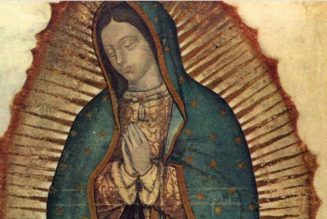
ROME — Allowing Anglican ministers to concelebrate a liturgical service at an altar of the pope’s cathedral was a cause of scandal for Catholics that should never have happened, according to a prominent canonist, even if it was a well-intentioned act of ecumenical generosity.
The controversy erupted after a group of 50 Anglican ministers from the Fulham area of London led by their bishop, Anglican Bishop Jonathan Baker, concelebrated a liturgy at the altar in the Archbasilica of St. John Lateran on April 18.
In an April 20 statement, Bishop Guerino Di Tora, vicar of the archpriest of the archbasilica, expressed “deep regret” that it had taken place, adding that the “unfortunate episode was caused by a breakdown in communications” and that allowing the liturgy was in “contravention of canonical norms.”
Explaining to the Register April 21 why the episode was so problematic, canonist Father Gerald Murray, pastor of Holy Family Church in New York City, began by saying that the Anglican liturgy in the Lateran breached Article 137 of the Vatican’s Directory for the Application of Principles and Norms on Ecumenism.
The rule allows a visiting group not in full communion with Rome to celebrate a liturgy in a Catholic church, but only “if they do not have a place or the liturgical objects necessary for celebrating worthily their religious ceremonies.” This was “clearly not the case,” Father Murray pointed out. Rome has at least two Anglican churches: that of All Saints and the Episcopal church of St. Paul’s Inside the Walls.
He stressed that the rule is not an absolute ban, as it depends on the availability of an Anglican church. It also relies on the prudence of allowing such permission, as doing so should not “imply the Catholic authority believes the Anglican is validly ordained and thus capable of celebrating Mass.”
“Objectively speaking,” Father Murray continued, “the Anglican communion service is the simulation of the Mass, and the Anglican minister, who is not a validly ordained priest, does not have the power to do what a Catholic priest does when he consecrates the bread and wine.”
Since Pope Leo XIII’s 1896 papal bull Apostolicae Curae, the Church has officially regarded Anglican orders “absolutely null and utterly void,” and so Anglican ministers who concelebrated in the Lateran are not valid priests and the liturgy was not a valid Mass.
The group’s members were also traditionalist “Anglo-Catholic” ministers who reject the ordination of women and whose vestments are Catholic in appearance.
“That scandal is magnified,” Father Murray added, “when this celebration is reported on in the media.” Furthermore, he said the fact that it occurred in the Lateran Basilica makes it “more noteworthy.”
The Lateran is not only the official ecclesiastical seat of the pope as the bishop of Rome, which Pope Francis has also emphasized in recent documents, but also the “mother of all the churches in the city and the world,” words inscribed in Latin on the church’s façade.
It could therefore appear to “imply that the Pope personally authorized this celebration,” Father Murray continued, although he added “there is no evidence that he did.”
In any event, he continued, the Anglican celebration would predictably be interpreted by some “as a papal approval of a form of worship that objectively, per se, rejects Catholic doctrine on the Mass and the Holy Eucharist.”
This therefore means that a “well-intentioned act of ecumenical generosity, with no intention to contradict Catholic doctrine, becomes a scandalous event that could cause people to question the Church’s teaching about the nature of the Mass and the invalidity of Anglican orders.”
“For that reason alone,” he said, “this permission should not have been granted.”
Adding to the concerns over this transgression was that until he was appointed Anglican bishop in 2011, the chief celebrant, Anglican Bishop Baker, was a known Freemason, something he initially said was compatible with such a position but then changed his mind after discussions with Archbishop Rowan Williams of Canterbury. In 2014 it also emerged that he had divorced and the following year remarried in a civil ceremony followed by a blessing in an Anglican church.
‘Absolutely Inappropriate’
News of the illicit liturgy caused consternation among many Catholics, particularly among traditional Massgoing Catholics whose own liturgies have been severely restricted by the Holy See. Others contrasted the accommodation granted to the group of Anglicans to the refusal, over the last two years, to allow Catholic priests to celebrate individual private Masses in the side altars of St. Peter’s Basilica.
The permission also upset former Anglicans now in communion with Rome through the Personal Ordinariate established by Pope Benedict XVI in 2009. Msgr. Keith Newton, a former Anglican who heads the Personal Ordinariate of Our Lady of Walsingham, told the Register April 19 he thought it “an inappropriate thing to do.”
Vaticanist Franca Giansoldati of the Italian newspaper Il Messaggero said the episode was a “total embarrassment” to both the Lateran and Santa Marta (the Pope’s residence), “a sensational misunderstanding with almost comical undertones.” Giansoldati believed the incident occurred “because of the obvious flaws in the chain of communication between London and Rome.”
However, the group clearly had made connections with some prominent Catholic officials ahead of its arrival. The day after the Lateran liturgy, the Anglicans had a dinner and discussion with Cardinal Walter Kasper, a previous head of the Dicastery for Promoting Christian Unity, and before the scandal erupted, Cardinal Gerhard Müller addressed them at the Villa Palazzola, the summer residence of the Venerable English College (sources say he was unaware of Baker’s past).
Vatican Viewpoint
Benedictine Father Martin Browne, an official of the Dicastery for Promoting Christian Unity, told the Register April 20 that the dicastery understood that Baker wrote to the Lateran’s archpriest, Cardinal Angelo De Donatis, “some time ago, asking if his group might be permitted to celebrate in the basilica, and that he subsequently received a reply in the affirmative from a member of staff.”
The dicastery itself knew in advance the Anglican group would be visiting Rome; they had “an interesting and useful exchange” with the Anglican group when they visited their offices last week, Father Browne said, and arranged for them to meet Pope Francis after his weekly general audience. But he stressed the Vatican office was “not involved in any of the arrangements or activities during their visit.”
Addressing the severity of the scandal generated by the liturgy at St. John Lateran, Father Browne pointed out that “the celebration took place in the apse, which was clearly roped off, with staff on duty throughout the celebration. No members of the public nor anybody else was present or nearby.”
He also noted the Vatican’s ecumenical directory calls for a “certain ‘reciprocity’” in sharing activities and resources in order to further “harmony among Christians.” Although he said he could not speak for the basilica’s authorities, Father Browne presumed the request “was granted in that spirit of reciprocity, welcoming what was clearly an Anglican pilgrim group” — an apparent reference to how the Church of England allows Catholics and other Christians to celebrate liturgies in their cathedrals, most of which were Catholic until the Reformation.
Referring to the Lateran’s apology, he believed “everyone acted in good faith and without any intent to cause offense or embarrassment to anyone else” and that the reaction to allowing the liturgy was “perhaps above all else a reminder of the need to pray continually for the Lord’s gift of unity, so that all may one day celebrate at the same altar the saving mysteries of the one Lord.”
According to canon law, a penitential rite could be required if an altar is desecrated, and some canonists told the Register that they believe that applies here, although it’s left to the judgment of the ordinary. They cited Canon 1210, which states that “only those things which serve the exercise or promotion of worship, piety, or religion are permitted in a sacred place; anything not consonant with the holiness of the place is forbidden”; and Canon 1211, which states that “sacred places are violated by gravely injurious actions done in them with scandal to the faithful.”
The Register contacted Baker’s office on April 20 to ask how they came to be able to use the altar, but he and his clergy were continuing their trip to Rome and had not responded by press time. Photographs of the liturgy that had previously been made public on one of the Anglicans’ Facebook pages have been deleted or restricted.
Pope Tawadros’ Liturgy Scheduled
Since news of this liturgy broke, it has emerged that Pope Tawadros II, the Coptic Orthodox Patriarch of Alexandria, will celebrate the Orthodox liturgy in St. John Lateran on May 14, becoming the second time a non-Catholic group will have celebrated their own liturgy in the archbasilica.
The context is different because, unlike the Anglican liturgy, the Church recognizes the Orthodox Church’s sacraments as valid, even if it is still in schism.
Father Browne told the Register the celebration will also be part of a series events to mark the 50th anniversary of the first meetings of “the heads of the Churches of Rome and Alexandria after a millennium,” and Patriarch Tawadros will celebrate at a specially constructed altar.
Although the Coptic Orthodox have their own church in Rome, Father Browne said the liturgy is for the Coptic faithful in Italy and so expected to attract up to 3,000 people, “far more than could be accommodated in Pope Tawadros’ own church in Rome.”
In short, he said, the liturgy will therefore be “precisely the kind of practical sharing” allowed in the Directory for the Application of Principles and Norms on Ecumenism.
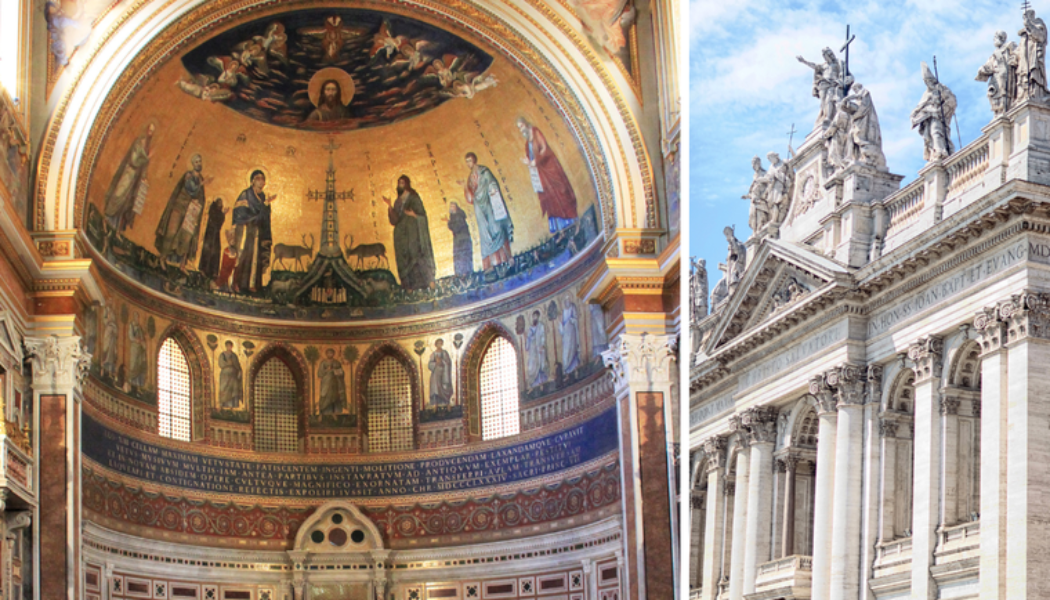
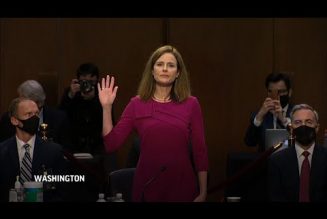
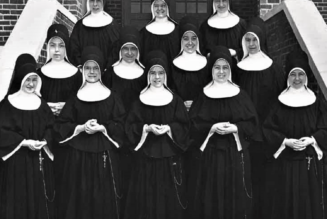

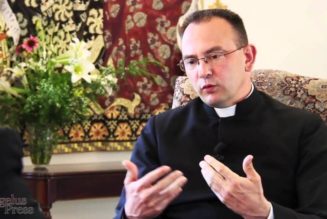
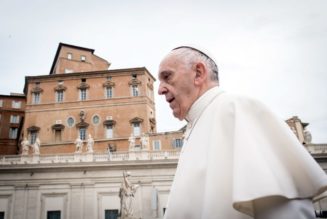

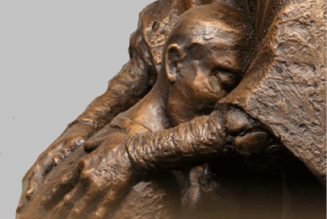
![An open letter to the Catholic bishops of the world on the German Catholic Synodal Path [PDF]…](https://salvationprosperity.net/wp-content/uploads/2021/05/an-open-letter-to-the-catholic-bishops-of-the-world-on-the-german-catholic-synodal-path-pdf-327x219.gif)
